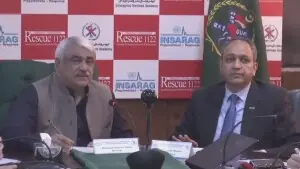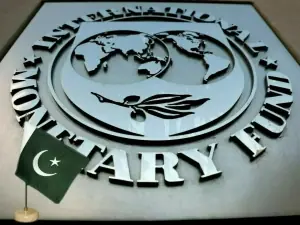Joint session of Parliament approves electoral reforms, NAB amendment bills
2 min readThe joint session of Parliament on Thursday approved “The Elections (Amendment) Bill, 2022” to conduct pilot projects in by-elections before using I-Voting and Electronic Voting Machines in general elections.
Minister for Parliamentary Affairs Javed Murtaza Abbasi moved the electoral reforms bill.
Earlier President Arif Alvi had refused to sign the Elections (Amendment) Bill, 2022 and the NAB (Amendment) Bill, even though both the houses had passed them. The president in his letter to the prime minister had claimed that Article 46 of the Constitution had been violated as he was not informed about the legislative proposal before the bill was brought to the parliament.
Speaking during today’s joint session, Abbasi rejected the president’s observations and objections by terming them baseless.
The bill will reverse the PTI-led government’s amendments to the electoral reforms bill - passed in November last year - that permitted the use of electronic voting machines (EVM) in the next general election and granted overseas Pakistanis the right to vote.
Law Minister Azam Nazeer Tarar said the legislation is the sole prerogative of parliament and President cannot dictate the legislature.
The joint session also passed “The National Accountability Bureau (Amendment), Bill, 2022” aimed at preventing misuse of law for political engineering and victimization of opponents.
Law Minister Azam Nazeer Tarar, while tabling the bill, rejected the observations and objections raised by President Alvi, except that the NAB chairman may declare any place as a sub-jail.
The bill proposed that the NAB ordinance will not be applicable to all matters pertaining to federal, provincial or local taxations, decisions of the federal or provincial cabinet and constitutional bodies, as well as procedural lapses in the performance of any public or government work.
It states that the chairman and deputy chairman of NAB will be appointed by Federal Government.
The chairman NAB will be appointed by the federal government after consultation between the leader of the House and the leader of the opposition in the National Assembly.
The bills do not need approval by the president, once they are passed in the joint session of the parliament.
For the latest news, follow us on Twitter @Aaj_Urdu. We are also on Facebook, Instagram and YouTube.

























Comments are closed on this story.